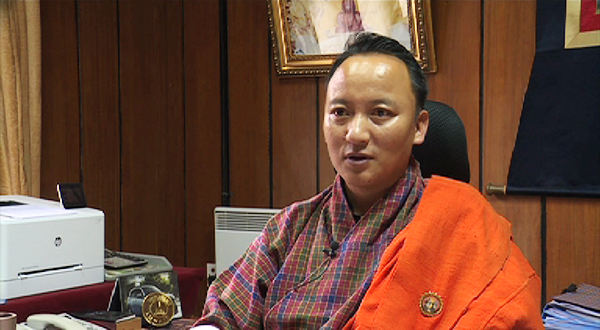 The Finance Ministry is working on introducing Property Tax Act which will include a value-based taxation policy. The new Property Tax Act will resolve ambiguities and biases that come from the Revised Taxation Policy 1992. Although the property value has increased manifold, even after 30 years Bhutan still refers to Revised Taxation Policy 1992 to impose the land tax.
The Finance Ministry is working on introducing Property Tax Act which will include a value-based taxation policy. The new Property Tax Act will resolve ambiguities and biases that come from the Revised Taxation Policy 1992. Although the property value has increased manifold, even after 30 years Bhutan still refers to Revised Taxation Policy 1992 to impose the land tax.
Bhutan currently does not have a separate Property Tax Act. The Finance Ministry still comply with Revised Taxation Policy 1992 to collect taxes from landowners.
“As per the definition, a three-kilometre radius away from Throm is considered rural. So with the rapid expansion and urbanisation of many Throms, most of the areas which currently falls under Dzongkhag Throm are being categorised as a rural area in terms of tax collection. So with this, there are certain ambiguities and biases,” said Namgay Tshering, the Finance Minister.
As per the Revised Taxation Policy, commercial land is taxed Nu 0.50 per square feet and residential land Nu 0.25 per square feet.
Many experts also cited the policy as the bottleneck. With the minimal tax, Local governments including Thromdes cannot often carry out developmental activities required by urban policies. As a result, many activities remain unfulfilled or quality compromised.
“In the rural area, the gewog office collects the taxes and in Dzongkhag, the Dzongkhag administration collects that. When officials go to each household to collect tax, the revenue we generate isn’t even enough to pay our officials,” the Finance Minister said.
The new Property Tax Act however will be based on Property Assessment and Valuation Agency (PAVA) rates and is expected to make a fair and equitable system for the taxpayers.
“We need to have a value-based taxation policy in place at ad valorem rate. If we have that in value-based, we can determine one tax rate multiplied by the value amount, it will be applied uniformly across the board. Right now, for example, Debsi in Thimphu as per 1992 RTP falls under rural area, whereas if we look at the infrastructure development, it has already become urban core within Thimphu Throm. But in terms of land tax, they continue to pay rural tax,” Lyonpo added.
The landowners however say there is a need for provisions to benefit landowners as well if in case such a system comes in place.
“Yes, town developments are done with the loans availed from other international banks. But if you look at the taxes now, some can pay and some they cannot. If we can pay the taxes, it proves our independence. But the main component here is the bank. The interest for housing loan is quite high here. With the interest, the rent is charged at par with it. If they could lower the interest rate and increase the taxes a bit, these two can go together,” said Namgay Tshering, a Landowner in Thimphu.
“Taxes are important. If not us, who will pay the government? But the first issue we face is water. If not 24 hours, they should at least provide us with three hours in the morning, afternoon and evening. Secondly, if they could send us garbage truck on time and thirdly if they could maintain sewerage. If these problems are looked after, we will have to give more taxes. The government also meet their expenditure from there,” added Mindu Dorji, also a landowner in Thimphu.
The Finance Ministry is currently carrying out the groundwork for the Property Tax Act closely with other relevant agencies.
Samten Dolkar








